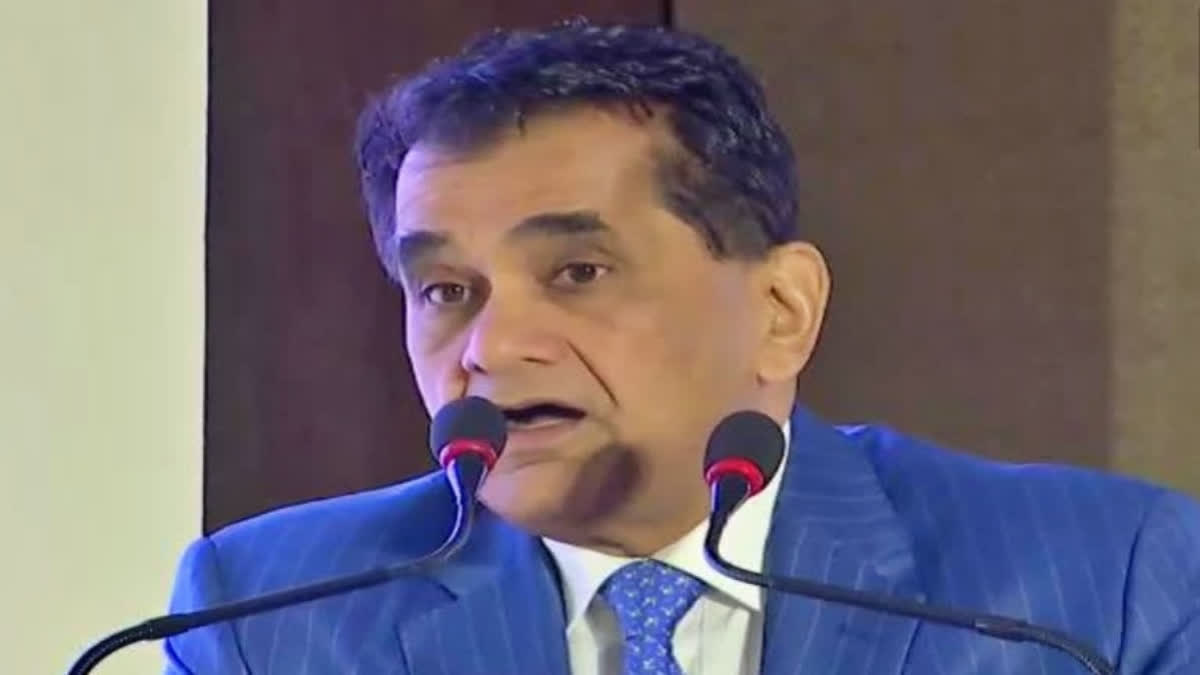New Delhi: Describing the outcomes of the G20 New Delhi Summit as the most ambitious ever, India’s Sherpa Amitabh Kant has said that India has been able to achieve consensus for all paras of the New Delhi Declaration.
“The New Delhi Declaration has 83 paras,” Kant said while addressing a Panel Discussion on the Outcome of the G20 New Delhi Summit organised in virtual mode by the Research and Information System (RIS) for Developing Nations think tank. “In all paras, we managed to achieve 100 per cent consensus. We have also achieved consensus on the Russia-Ukraine crisis.”
Also read: Amitabh Kant- the man who united G20 nations in unprecedented consensus in New Delhi declaration
He said that India, during its presidency of the G20, India worked as the voice of the Global South. He added that India brought together the sherpas of Indonesia, holder of the last presidency of G20, and those of Brazil and South Africa, who will hold the upcoming presidencies, and approached all the member states of the Group together.
“We appealed to all the emerging economies and developed nations to abide by the global rules of order,” Kant said. “This could be possible only in the land of Buddha and Gandhi.” He further stated that the outcomes demonstrated that India could bring together the emerging economies, developed nations and Russia together.
Read more: G20's historic consensus achieved after 200 hours of negotiations and 300 bilateral meetings, culminating in New Delhi declaration
“The entire process was driven by us in a forward-looking manner,” India’s G20 Sherpa said. “The outcomes of the G20 New Delhi Summit are the most ambitious ever. We produced double the outcomes than ever produced before. We managed to bring in the African Union (AU) as a permanent member of the G20.”
Kant said that India also pushed for the use of digital public infrastructure (DPI) in the UN’s Sustainable Development Goals (SDG) Action Plan. “We brought a voice of moderation in a divided world,” he said. “We proved that the G20 can deal with global issues in a much better manner than the UN Security Council.”
Kant said that in the next decade, two-thirds of trade will come from the Global South. “Global issues in the G20 will be cross-cutting in nature,” he added.
Addressing the participants, Jeffrey Sachs, director of the Centre for Sustainable Development in Columbia University, said that people today are living in two worlds.
“One is led by the US and the North Atlantic that is trying to contain China,” Sachs said. “The other is the Global South. I would like to call it the non-North Atlantic world.”
He said that the voice of 85 per cent of the world will now have to be heard, adding that this voice is saying that “it is our turn now”. “The New Delhi Declaration has everything in it. Now comes the hard work of implementing it,” Sachs said.
He further said that the inclusion of the AU in the G20 will be fantastic for India-Africa relations for generations to come. “India’s success will be Africa’s success,” he added.
Anil Sooklal, South Africa’s Sherpa for G20, BRICS (Brazil, Russia, India, South Africa) and IBSA (India, Brazil South Africa), said that India did not allow the Russia-Ukraine conflict to become central in the New Delhi G20 Summit.
“This is not the platform to resolve geopolitical and security issues,” Sooklal said. He also pointed out that it took 18 summits for Africa to come to the G20 table.
